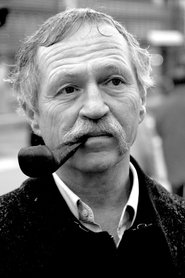 José Bové
Talence, France
José Bové
Talence, France

Joseph Bové, known as José Bové, born June 11, 1953 in Talence (Gironde), is a French agricultural trade unionist and politician. A farmer, member of the Confédération paysanne and Via Campesina, he is one of the figures of the alter-globalization movement, known for his positions against genetically modified organisms (GMOs) and his participation in illegal uprooting of GMO plantations, described as civil disobedience by their defenders.
Coming from an academic background, his father, Joseph Bové, was regional director of the National Institute for Agronomic Research (INRA) and member of the Academy of Sciences, while his mother, Colette Dumeau, was a professor of natural sciences. From a young age, José Bové became involved in pacifist causes. Refusing to do his military service, he was considered a deserter and settled in the Pyrenees where he became a shepherd. In 1973, he joined the Larzac plateau to participate in the farmers' movement against the extension of the military camp. This commitment marked the beginning of his fight against globalization and agri-food multinationals.
In 1999, José Bové became internationally known when he dismantled the McDonald's in Millau, a symbolic action against junk food and globalization. This act earned him a three-month prison sentence, but strengthened his reputation and his image as a determined activist. José Bové is also the co-founder of the Confédération paysanne, an agricultural union advocating peasant and sustainable agriculture. He actively campaigns against GMOs and for food sovereignty. In 2009, he was elected MEP on the Europe Écologie list and sits on the Agriculture and Rural Development Committee. Despite his retirement from active political life, José Bové continues to divide his time between his farm in Larzac and his boat in Hyères. He remains an influential voice in debates on agriculture and the environment, always ready to defend his convictions with passion.
José Bové embodies the fight for agriculture that respects the environment and people, and his career is marked by a constant commitment to social and ecological justice. His legacy as an activist and politician continues to inspire many actors in the alter-globalization movement and beyond.










